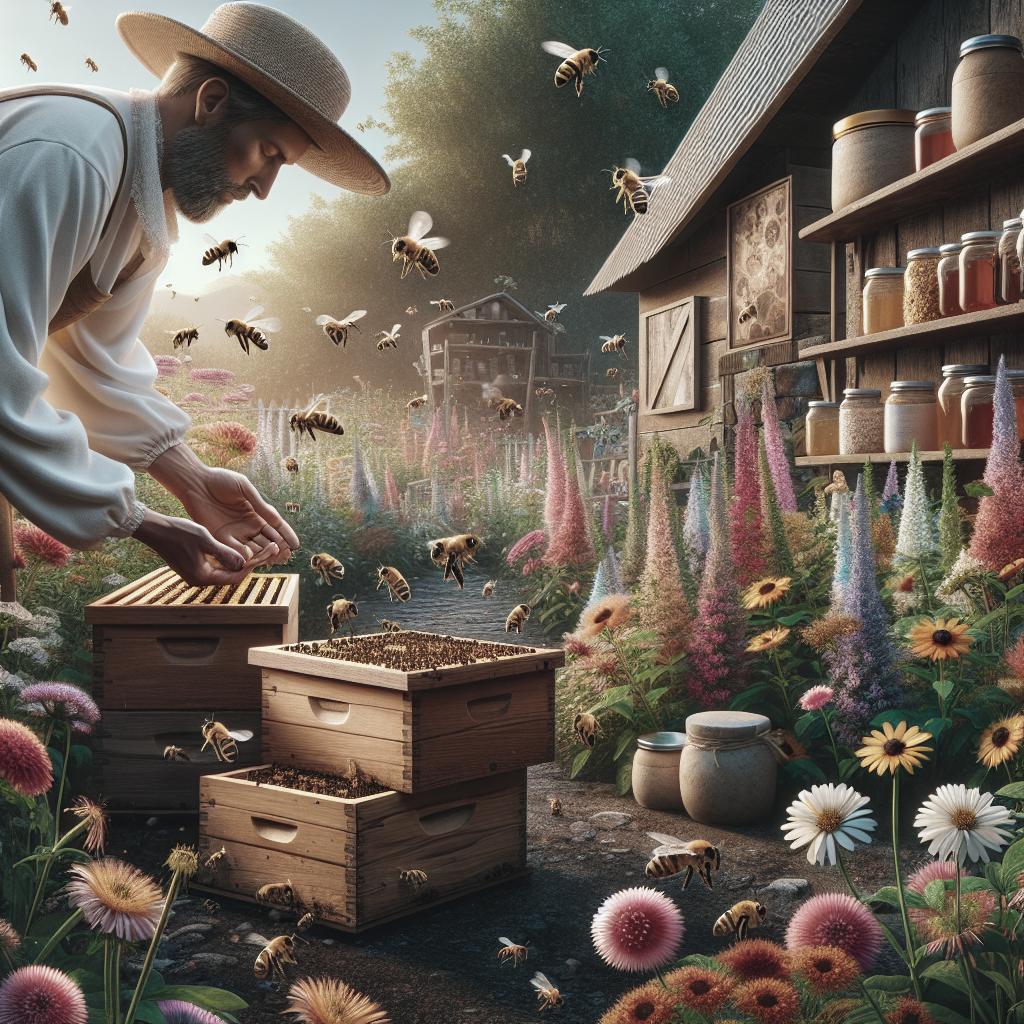How to Support Local Beekeepers
Supporting local beekeepers is crucial for maintaining healthy ecosystems, bolstering local economies, and ensuring pollination for many of the crops that feed us. This blog post details various ways individuals and communities can contribute to the thriving of local beekeepers. From understanding the importance of bees in agriculture to engaging with beekeeper associations, there are multiple avenues to support the beekeeping community. Additionally, this guide delves into practical actions you can undertake right in your community. By the end of this post, you’ll be equipped with knowledge and actionable steps to make a difference.
Feeding the world with Ulu (Breadfruit)
Breadfruit, or Ulu, stands as a staple food in many tropical regions, its hearty nutrients and versatility offering sustenance to countless communities. However, the role of bees in the pollination of breadfruit trees cannot be understated. Bees facilitate the reproduction of breadfruit and many other crops, making them indispensable to the global food supply.
Local beekeepers play a critical role in the preservation of bee populations that are vital for these pollination processes. Supporting beekeepers can help ensure that these essential pollinators continue to thrive, which directly impacts the availability and quality of crops like breadfruit.
Turning food waste into products.
One innovative way to support local beekeepers is by turning food waste into products, such as compost, honey-infused beauty products, or beeswax items. Beekeepers often use these sustainable methods to reduce waste and create additional revenue streams.
This not only supports the beekeepers economically but also encourages a circular economy where byproducts of beekeeping are innovatively repurposed, contributing to environmental sustainability.
beekeeping2.png
Images are powerful tools in storytelling and awareness campaigns. Sharing captivating photos like “beekeeping2.png” can help spread awareness about beekeeping practices and the importance of bees in our ecosystem.
Utilize social media platforms to share these images and highlight the significance of supporting local beekeepers. This can increase community engagement and educate the public about the vital role of bees.
What Is the Purpose of a Beekeeping Association?
Beekeeping associations are commune-driven initiatives that offer a platform for education, resource sharing, and advocacy for beekeepers. These associations provide an invaluable network that connects novice and veteran beekeepers, facilitating knowledge exchange and support.
Engaging with or supporting these associations can enhance their efforts in promoting sustainable beekeeping practices, educating the public, and lobbying for pro-bee policies.
Bee Keepers Detroit 1.jpg
The image “Bee Keepers Detroit 1.jpg” captures the industrious nature of beekeeping in urban spaces, showcasing beekeepers in action. Such visuals serve as both an artistic expression and a tool for awareness.
By endorsing or sharing these images, you contribute to a broader understanding and appreciation of beekeeping, encouraging others to support local beekeepers in their own communities.
Meet a Beekeeper
Meeting a beekeeper can provide first-hand insight into the operations and challenges they face. This interaction offers a unique opportunity to learn about the intricacies of bee life and the dedication required to maintain a colony.
Through personal stories and experiences, you’ll understand the importance of sustaining beekeeping practices and fostering environments where bees can thrive.
Contact Your Local Center
Your local agricultural extension office or environmental center can be a resourceful point of contact to learn more about beekeeping in your area. These centers often partner with beekeepers to offer workshops, training sessions, and other educational opportunities.
By reaching out, you can discover various ways to support local beekeepers through volunteer work, financial donations, or public awareness campaigns.
Interview Questions
Conducting interviews with beekeepers can be an enlightening experience. Ask questions about their day-to-day operations, challenges, and how community support can make a tangible difference in their work.
The insights gained from these interviews can serve as content for blogs, articles, or social media posts, helping to inform and engage a wider audience about the importance of supporting bee conservation efforts.
Take Action in Your Community
There are myriad actions you can take in your community to support local beekeepers. This can include establishing pollinator-friendly gardens, hosting awareness events, or initiating crowdfunding campaigns to support beekeeping projects.
Engaging with local schools, businesses, and municipalities can also broaden the reach and impact of these initiatives, fostering a community that values and supports its beekeepers.
More about Bees
Bees are integral to biodiversity and agriculture, yet they face threats from pesticides, habitat loss, and climate change. Understanding more about bees’ roles can prompt targeted conservation efforts and policies.
Knowledge-sharing about bee biology, behavior, and threats can elevate public discourse and motivate community-driven solutions to preserve bee populations.
Related Topics
Expand your understanding of beekeeping by exploring related topics such as organic farming, sustainable agriculture, and the impact of pesticides. These subjects offer further context on the challenges beekeepers face and how they can be addressed through policy and innovation.
Links & Attachments
Consider including links to resources and further reading on beekeeping, podcasts, and videos about the importance of bees and how to create bee-friendly environments. Attachments of guides or manuals can provide practical steps individuals can take.
| Topic | Key Points |
|---|---|
| Ulu & Beekeeping | Bees crucial for pollination, support local beekeepers to secure food supply. |
| Food Waste Products | Sustainable byproducts aid in beekeeper financing and environmental impact. |
| Beekeeping Photos | Visual stories raise awareness and support through social media sharing. |
| Beekeeping Associations | Foster educational and support networks for sustainable practices. |
| Meet a Beekeeper | Gain insight into beekeeping challenges and community engagement. |
| Community Action | Create pollinator-friendly spaces, raise awareness, and support initiatives. |
| Bee Knowledge | Understanding threats and biology can improve conservation efforts. |


